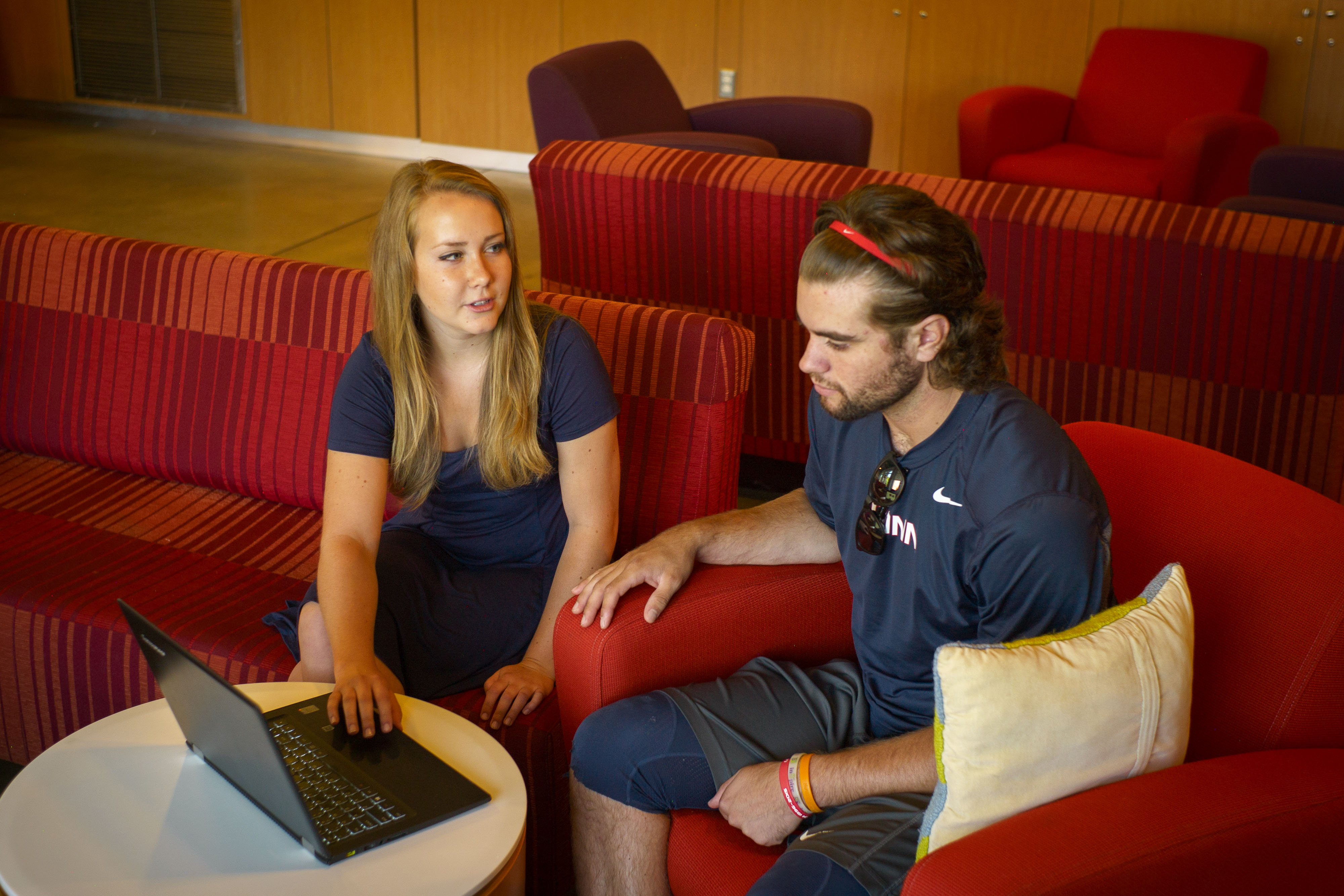A new UConn program makes deciding what to study in college less stressful and more strategic.
The Major Experience, which launched this past spring, provides information and advice to students as they explore possible college majors in an interactive and intentional manner, easing their fears and better preparing them for the future.
“It really puts the students in the driver’s seat,” says Harry Twyman, the program’s coordinator.
The Major Experience relies heavily on its web page, tme.uconn.edu, to ensure that ample resources and tools can be found easily in one location, and program staff and student mentors work collaboratively to offer students personalized guidance. The goal: to empower students, helping them to choose a major with confidence.
“UConn is a big school,” Twyman says. “Sometimes students just don’t know where to go and where to start.”
When Julia Gannon arrived in Storrs last fall, she thought she wanted to be a teacher, but then she learned more about journalism and took an interesting geoscience class. Suddenly, she wasn’t so sure.
“I was really stressed,” she says. “I just got really flustered.”
Trying to be proactive, Gannon made an appointment this winter with Twyman at the UConn Academic Center for Exploratory Students (ACES). There, she learned about The Major Experience.
While The Major Experience is run through ACES, it is not solely for exploratory students – and not just for freshmen, Twyman says, noting that ACES, too, is not just for freshmen. “That’s a stereotype we’ve tried to battle over the years,” he adds.
At any point during their academic careers, students can utilize The Major Experience and other ACES services. Twyman says some students may only be starting to evaluate their interests when they ask for help; others, like Gannon, may only need to do a little research to know if they are making good decisions.
Through The Major Experience, current UConn students, or newly accepted UConn students, are able to request action plans via the program’s website to help guide them through the process of choosing what to study. When making a request, students fill out a questionnaire, and they receive personalized feedback from The Major Experience staff in return.
Each student who uses the program has access to staff coaches like Twyman and mentors like Lisa Iwanicki.
Iwanicki ’18 (NUR), a mentor for The Major Experience, believes in the program and is excited to help other students. She previously served as a mentor for UConn’s First Year Experience program, but will focus solely on The Major Experience this school year.
“This program has really taken off,” Iwanicki says. “It’s everywhere now, and it’s great.”
Working with The Major Experience appeals to Iwanicki because she is able to pass along valuable information to her peers, and she’s already talked to a few students about work load, college life, and specific classes.
“We try really hard to have the students we help pick a major with confidence and intentionality,” she says.
Iwanicki also enjoys working with the program’s many other mentors.
“I love networking with people of the same mindset,” she says. “There are so many great ideas.”
While Gannon did not talk to Iwanicki as she weighed her options, she did speak to other helpful student mentors and used The Major Experience’s convenient website.
Between The Major Experience and volunteer opportunities in her hometown of Waterford, Conn., Gannon has become more confident in her decision to become a teacher.
“I just needed that reassurance,” she says.
Since its launch in the spring, The Major Experience has had more than 24,500 page views and nearly 5,300 users, including 222 students who have requested action plans.
Fifty percent of the students who requested action plans were freshmen, 33 percent sophomores, 15 percent juniors, and 2 percent seniors. Forty-five percent of the students did not have a declared major, while 55 percent had already declared a major, but were looking to change majors or learn more about their current major or add another major.
Twyman says the statistics underscore the need for the program: “The fact that there are more students with declared majors than exploratory students using this service shows that there’s a need for something like this for non-ACES students.”
His focus now is on letting students know about The Major Experience and ensuring that they get the help they need to be successful college students.
To learn more about The Major Experience, or to take advantage of the program’s many resources, visit tme.uconn.edu.



